READY TO GET STARTED?
REQUEST A FREE ESTIMATE
Fill out the form below or call (888) 466-7849 for a free, no-obligation estimate.
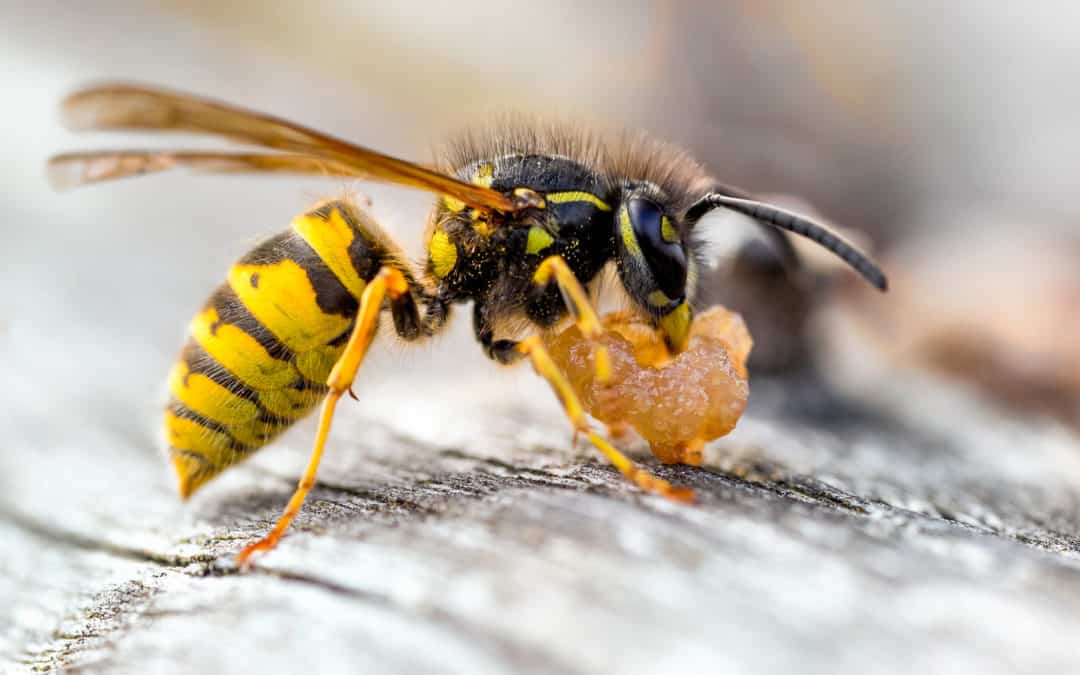
An encounter with a stinging pest can always be alarming, as they are known to have a painful sting. Since stinging pests are most active during the spring and summer, it’s important to know the most commons ones to look out for and how you can protect yourself and your family.
Social in nature, the yellowjacket can live in nests or colonies containing anywhere from 1,000 to 4,000 workers. Yellowjackets tend to build their nests on trees, buildings, and in the ground. Unlike bees, these insects have smooth stingers where they can sting several times if they start to feel threatened, which can be severely painful. These insects are highly attracted to sweet foods and proteins. If you plan on having a picnic or BBQ outside, make sure to keep your food covered tightly to eliminate the chance of attracting them.
Another popular stinging insect you should be aware of this spring and summer is the hornet. Hornets can sometimes be a benefit to homeowners as they can help control common household pests; although, they can quickly become a nuisance as they will often build nests throughout your property, such as in hollow trees, in the walls of houses and attics, and even in abandoned beehives. Like yellowjackets, these insects have smooth stingers. If stung by a hornet, the stinger can get lodged in the skin at the site of the sting. Hornets will eat tree sap, fruit, and honeydew. To prevent an encounter with these insects, keep both your food and garbage sealed in containers.
Known to build construction paper-like nests on branches, porch ceilings, eaves, and attic rafters, wasps can easily infest your entire property. These pests live in small colonies and like to eat nectar, along with common household pests such as flies and caterpillars. If these insects feel threatened or their nest is disturbed, they will sting multiple times. Their stings can be painful and often cause an allergic reaction. If you encounter hornets, don’t swat at them as this will only agitate them; instead calmly walk away and they generally will not follow.
If you’ve noticed these popular stinging insects around and inside your home, it’s best to reach out to your local pest control company to inspect and safely remove these insects.
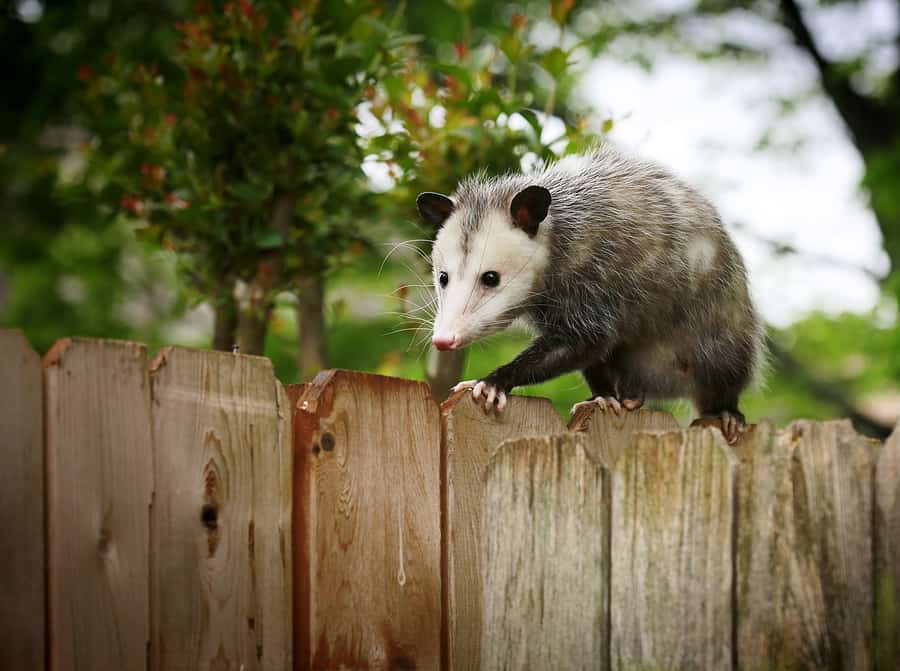
It’s true – many wildlife creatures invade and infest homes during the colder months of the year. However, there are still plenty of pests that are active and looking for a place to inhabit. Knowing which types are prevalent this season and how to prevent them can help you protect your home and family.
Snakes
As coldblooded animals, snakes get their energy from the sun. Because of this, snakes are more active during the warmer months as they require more energy to mate. You’ll typically see snakes out in the early morning and late evenings to avoid the high heat of midday. When they aren’t out, snakes like to hide out in cool, dark places such as underneath rocks and decks. You could also find them hiding out in your basement if they’ve gained access.
To keep nuisance pests from infesting your property it’s important to keep your lawn neat and clean. Clean up any yard clutter, such as piles of leaves and wood. Keep your grass mowed to eliminate coverage and trim bushes and hedges regularly. Always check your garage, garage doors, windows, and exterior doors for gaps and seal any openings.
Opossums
During the spring and summer, opossum females care for their young, meaning they are more active in searching for food to nourish them with. These animals are nocturnal and search for food at night. During the day, possums will hide in trees where they will stay until the evening. While they eat unwanted pests such as snails, cockroaches, spiders, and rats, they also eat garbage, fruit, grass, and roadkill.
To prevent opossums, keeping food from being left out outside your house is crucial. Make sure you bring in pet food and water from outside. Pick up any fruit that might have fallen from trees, including tossing out the rotten ones. It’s equally important to keep your garage doors, pet doors, or unscreened windows closed during the night.
Rats
Rats are active year-round, but the warmer weather provides them with more sources of food. These rodents can reproduce very quickly and controlling them can become difficult once they’ve infested. Rats will typically make burrows before wintertime, building these under buildings, concrete slabs, around lakes and ponds, and even near the garbage. These wildlife creatures can be a risk to humans as they can contaminate food, chew wires causing fire hazards, and their urine and feces can cause health concerns.
Taking necessary precautions before you start seeing rats is the key to preventing them. Check around the exterior of your home and seal up any cracks, crevices, and holes found in the foundation or siding. Remove clutter throughout your garages and storage areas, along with using plastic storage instead of cardboard. Keep your kitchen clean from any crumbs and spills and take your trash out regularly.
If you’ve taken the necessary steps to prevent these common wildlife but are still seeing them, it might be time to call your local pest control company. They’ll be able to assess the wildlife issue and provide you with the best wildlife control and wildlife exclusion options.
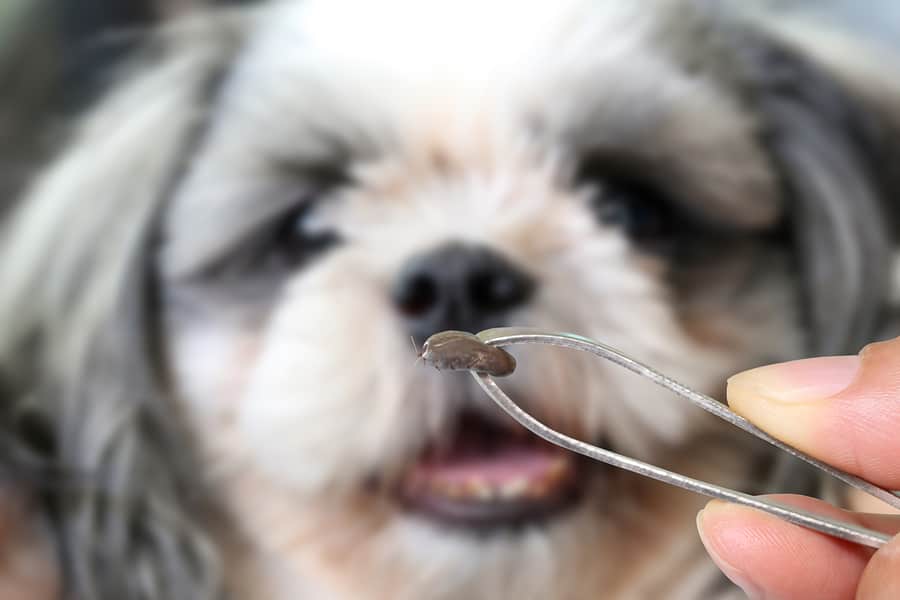
The weather is warming up, many of us are starting to spend time outside with our friends, family, and pets. Enjoying the outdoors has its benefits but also the disadvantage of coming across nuisance pests! Two common spring pests that can be harmful to both humans and pets are ticks and fleas. These insects will typically latch onto us or our animals, making their way inside homes, bringing the risk of infestation.
Fleas
Fleas tend to be dark red or brown, with their size varying between ½” to 1/6” in length. Fleas have a flat body, two antennae, and six legs. These pests will bite both humans and pets such as dogs and cats. Fleas have the incredible ability to jump to great heights, sometimes up to eight feet high! Jumping allows them to hitchhike into homes while hidden in pet fur. Dogs and cats will often get infested with fleas through contact with other animals or spending time outdoors. Once fleas have latched onto an animal host, they tend to stay there and then will easily transfer over to furniture or other animals. Fleas can be a health risk as their saliva is known to cause anemia, dermatitis, and facilitate and transfer tapeworms.
Ticks
There are two categories when identifying ticks: soft ticks and hard ticks. The soft tick will feed on bats and birds while the hard tick will feed on humans, pets, and nuisance wildlife. People and animals are likely to encounter ticks during the warmer months. Ticks can pose several health threats to humans and animals as they can transmit serious diseases such as Lyme disease and “tick paralysis.” Some tick species, such as the American Dog Tick, prefer to attach and feed on domestic dogs, which in turn allows them to sneak into our homes. When ticks feed, they can grow up to four times in size when engorged with blood, making them much easier to spot.
Controlling fleas and ticks can sometimes feel like an impossible task, especially if you have animals. If you suspect that you have a flea and tick problem, consider calling your local professional pest company who can thoroughly inspect your entire property and provide you with a treatment and prevention plan.
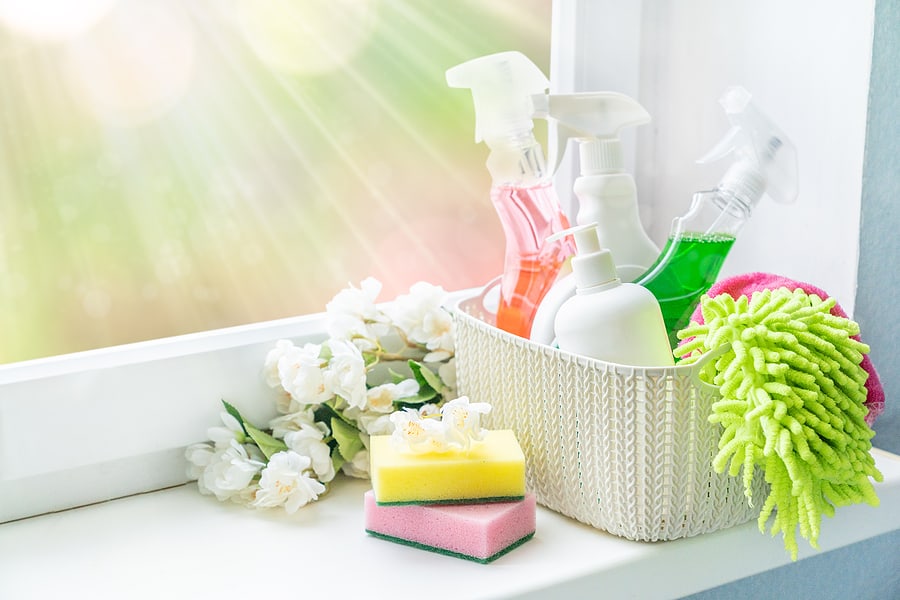
Spring is a perfect time to tackle home projects and deep clean the entire house! With warmer weather expected, it’s essential to get your home prepared and cleaned to make sure spring pests don’t infest!
For many, the kitchen is the heart and main area of the household. Family members gather, cook, and eat in this space, making the kitchen the ideal place for pests to take advantage of both food and water sources that are left behind. Pests like ants are known to infest the kitchen for these things they need to survive. Beetles and Indian meal moths are also searching for a food source, usually in pantries. To keep all these pests out, homeowners should make cleaning a priority all year long. Wipe down countertops after any spills or mess and clean up any food crumbs that might have dropped. Consider going through the kitchen pantry monthly to discard any expired items and wipe down the pantry shelves.
Keeping moisture out of your bathroom can sometimes feel impossible. Roaches and silverfish are two pests that are highly attracted to moisture and often found in the bathrooms of homes. With a little preparation and cleaning, every homeowner can eliminate moisture to keep these pests at bay. Check under the sinks and around the tub to ensure there are no leaks. Keep the bathroom decluttered by cleaning out the medicine cabinet and washing the shower curtain and liner.
Basements and crawlspaces are both dark and cool, making them the perfect place for pests to take refuge. Rodents and spiders are commonly found in these places and will often seek clutter and dark corners to hide in. Going through and eliminating cluttered items and belongings stored in the basement will help keep deter these pests. If storage is needed, avoid using cardboard boxes and use plastic bins with secure lids instead.
Keeping pests out of your home can sometimes feel impossible. If you notice more pests in your house than you can handle, consider reaching out to your local pest control company. These trained professionals can help identify the pests, provide a prevention plan, and treat areas as needed.
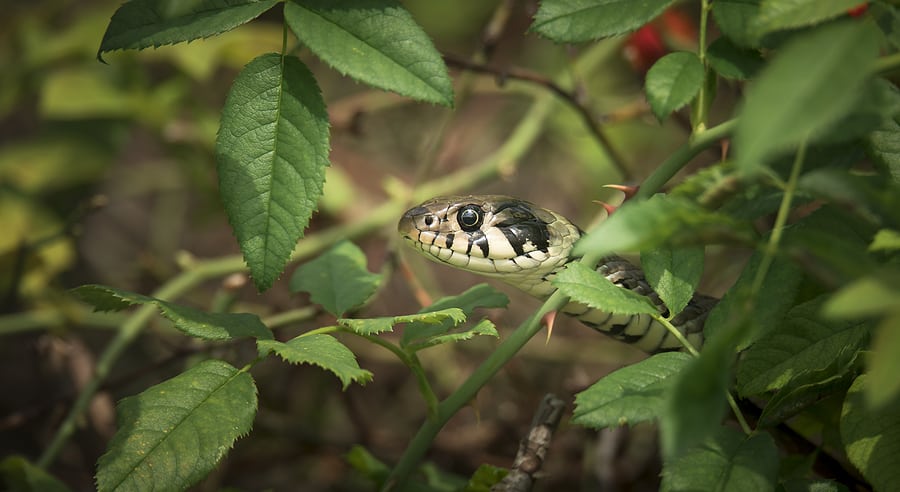
Snake season in Georgia starts in spring and runs through late fall. As the temperatures start to warm up, snake activity in our area will increase. As snakes emerge from hibernation, they will go in search of one thing: FOOD! This quest will often lead them into our backyards, gardens, and even local parks. With snake season just around the corner, now is the time to take action. Here are some snake prevention tips to help you prepare for snake season.
Snakes will use anything they can find for cover. Take the time now to clean up leaf litter, fallen logs, piles of bricks and rocks or anything else snakes can use as a hiding spot. If you can’t remove them, try to elevate them off the ground. Keep your lawn and any other surrounding areas with grass mowed short. Snakes will use tall grass as cover. Low hanging growth from trees, shrubs, hedges, etc. provide natural places for snakes to climb and hide. Keep them trimmed back from your home and off the ground. Discard any mulch or grass clippings away from your property as snakes will burrow into these for a sheltered hiding space.
Snakes will use holes in the exterior of your home to gain access inside. Carefully inspect the outside of your house for holes, making sure to check under roofs, under the house, in skirting, on garages, etc. Repair or block any openings that you find.
Snakes will often go after hatchlings and bird eggs. If you have chickens, ducks or any other birds, make sure their pens or aviaries are kept tidy and in good repair.
Snakes will feed on rodents, frogs, and other insects. Keeping these pests away from your home will help keep snakes away, as well. Clean up spilled or uneaten birdseed from underneath feeders; keep outdoor trashcans sealed with tight lids; feed your pets indoors when possible; if you must feed outdoors, feed once or twice per day and bring food and water bowls indoors in between feedings; seal pet food and bird seed in plastic or metal containers with tight lids.
Moisture also attracts rodents, frogs, and other insects that snakes feed on. Eliminating moisture will help make your property less attractive to snakes. Eliminate any areas of standing water; fix leaky pipes and spigots; try to avoid overwatering your lawn; consider enclosing your crawlspace.
Establishing a routine pest control service helps prevent nuisance pest problems before they get out of hand. By keeping these pest populations under control, you decrease the risk of snakes by eliminating potential food sources.
Most snakes that are encountered are non-venomous; there are some venomous snakes in our area that you should be careful to avoid, however. If you must be outdoors during snake season, wear long pants, long sleeves, gloves, and closed toed shoes. If you go outside at night, take a flashlight, lantern, or torch. If you do encounter a snake, don’t go near it and don’t try to kill it. Stay calm, keep your pets and children away, and allow the snake to move away on its own. Back away slowly. If you choose to, contact your local wildlife control company who can come and properly identify the snake and safely relocate or eliminate it.
4 Reasons For A Yellow Lawn and How To Fix It